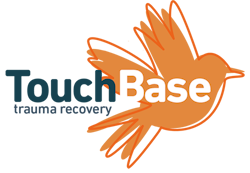Publications
Recommended Reading
Louise Michelle Bombèr has either written the following books or been one of the authors :
Recommended Reading
Louise Michelle Bombèr has either written the following books or been one of the authors :
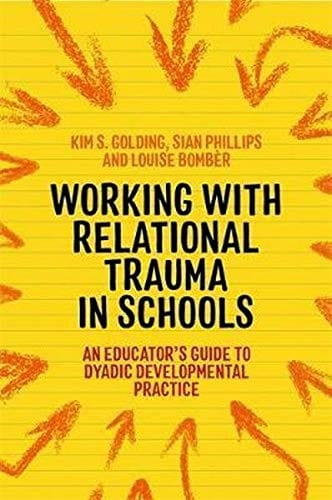
Working with Relational Trauma in Schools
Written by experienced clinicians, this book provides an exploration of how educators can easily use Dyadic Developmental Practice (DDP) to help vulnerable pupils to thrive.
DDP is an intervention model for children and young people who have experienced trauma in past relationships. Safety and security is increased through offering emotional connection in a variety of ways, helped by the attitude of PACE (playfulness, acceptance, curiosity and empathy). The model gives children the opportunity to experience the relationships necessary for healthy development, emotional regulation and resilience.
This book gives educators all the tools they need to embed DDP into their practice, including building connections with students, partnerships with parents, understanding the theory behind DDP, and overcoming the challenges of implementing it in practice. These principles can be adapted to support pupils at all levels.
Louise Michelle Bombèr, Kim Golding and Sian Phillips
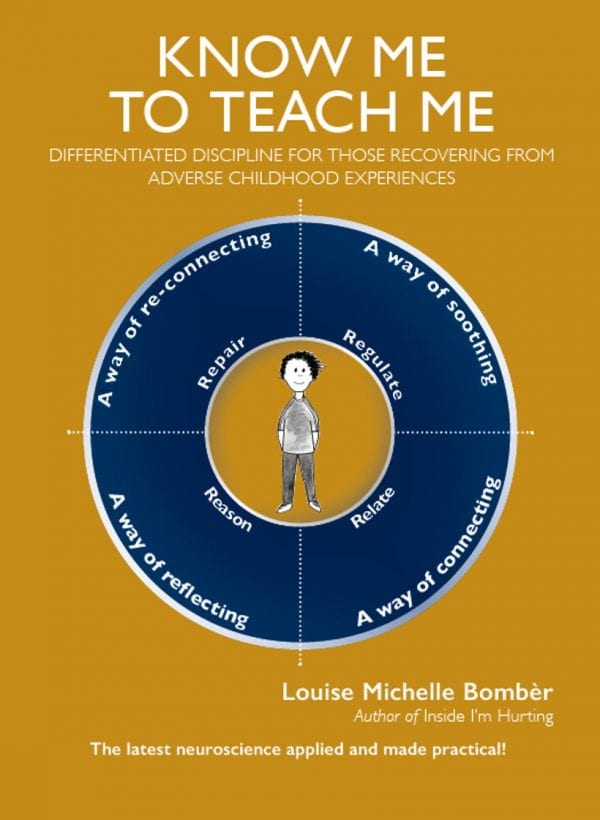
Know Me to Teach Me
Differentiated discipline for those recovering from adverse childhood experiences
Louise Michelle Bombèr
REGULATE, A way of soothing
RELATE, A way of connecting
REASON, A way of reflecting
REPAIR, A way of re-connecting
Know Me to Teach Me
Differentiated discipline for those recovering from adverse childhood experiences
Louise Michelle Bombèr
REGULATE, A way of soothing
RELATE, A way of connecting
REASON, A way of reflecting
REPAIR, A way of re-connecting
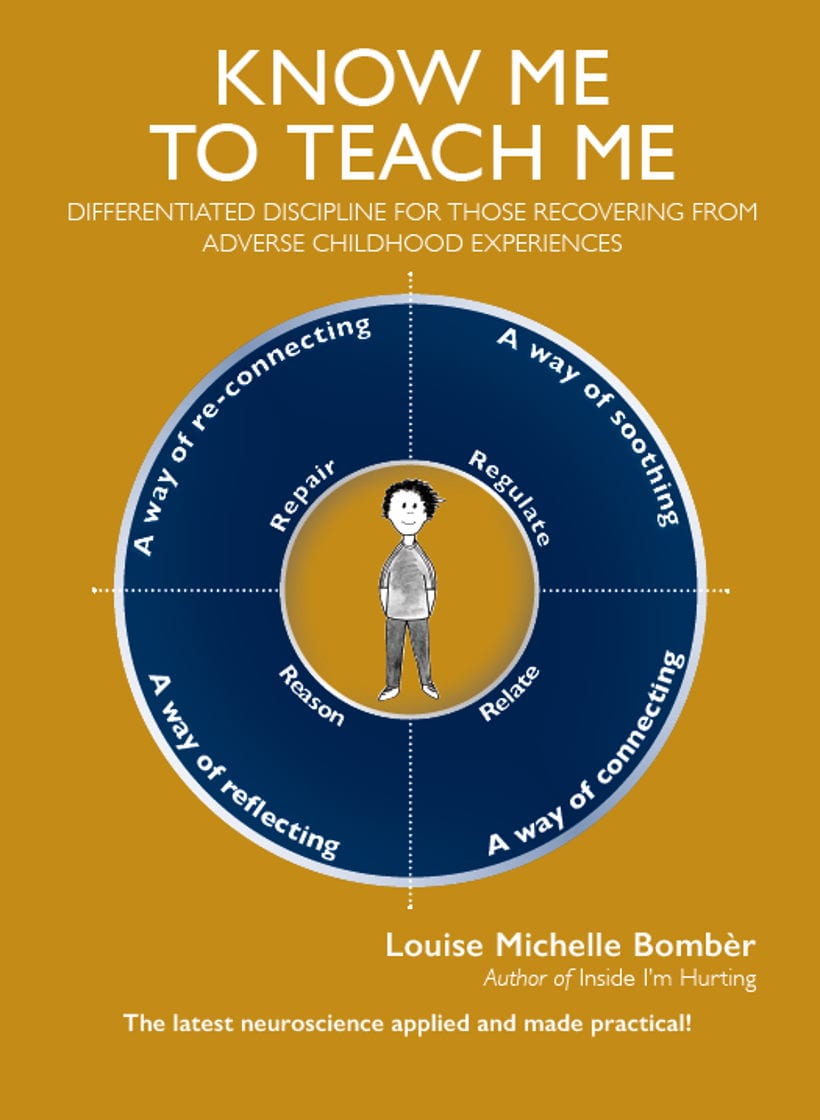
Know Me to Teach Me
Differentiated discipline for those recovering from adverse childhood experiences
Louise Michelle Bombèr
REGULATE, A way of soothing
RELATE, A way of connecting
REASON, A way of reflecting
REPAIR, A way of re-connecting
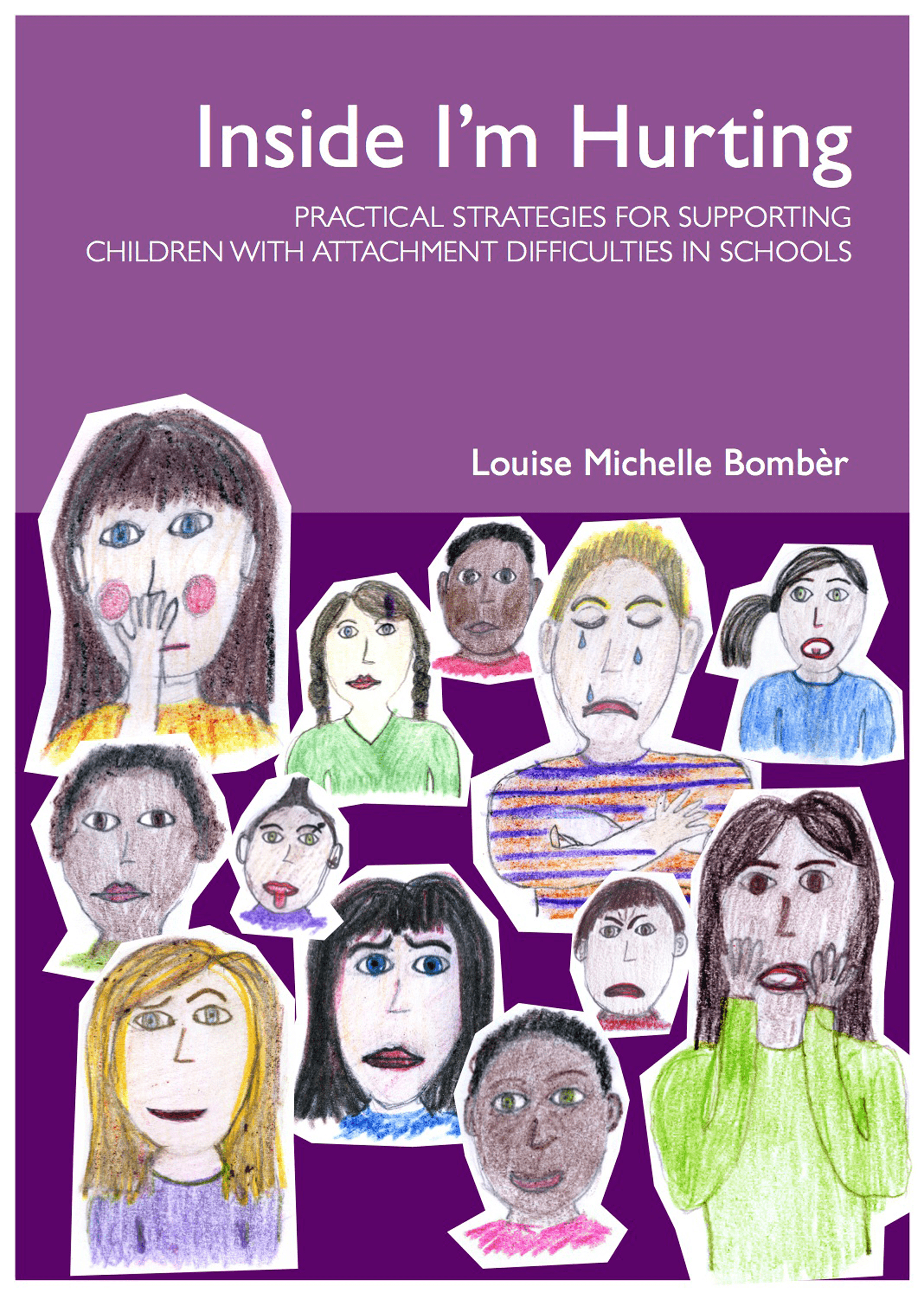
Inside I’m Hurting
Practical Strategies for Supporting Children with Attachment Difficulties in Schools
Louise Michelle Bombèr
Inside I’m Hurting provides educational professionals with a much-needed classroom handbook of new strategies, practical tools and the confidence for supporting these children from an attachment perspective, thus promoting inclusion in the school system. Contents include: how attachment difficulties can affect a child’s ability to learn; providing an ‘additional attachment figure’ in schools; the benefits and challenges of getting alongside children who have experienced trauma and loss; transitions during the school day; permanency and constancy; being explicit; regulating arousal levels; handling conflict; wondering aloud; lowering the effects of shame; working with transition from primary to secondary phase; developing effective home/school partnership (includes a photocopiable initial meeting prompt card); providing staff support; recommendations for future action.

Inside I’m Hurting
Practical Strategies for Supporting Children with Attachment Difficulties in Schools
Louise Michelle Bombèr
Inside I’m Hurting provides educational professionals with a much-needed classroom handbook of new strategies, practical tools and the confidence for supporting these children from an attachment perspective, thus promoting inclusion in the school system. Contents include: how attachment difficulties can affect a child’s ability to learn; providing an ‘additional attachment figure’ in schools; the benefits and challenges of getting alongside children who have experienced trauma and loss; transitions during the school day; permanency and constancy; being explicit; regulating arousal levels; handling conflict; wondering aloud; lowering the effects of shame; working with transition from primary to secondary phase; developing effective home/school partnership (includes a photocopiable initial meeting prompt card); providing staff support; recommendations for future action.

Inside I’m Hurting
Practical Strategies for Supporting Children with Attachment Difficulties in Schools
Louise Michelle Bombèr
Inside I’m Hurting provides educational professionals with a much-needed classroom handbook of new strategies, practical tools and the confidence for supporting these children from an attachment perspective, thus promoting inclusion in the school system. Contents include: how attachment difficulties can affect a child’s ability to learn; providing an ‘additional attachment figure’ in schools; the benefits and challenges of getting alongside children who have experienced trauma and loss; transitions during the school day; permanency and constancy; being explicit; regulating arousal levels; handling conflict; wondering aloud; lowering the effects of shame; working with transition from primary to secondary phase; developing effective home/school partnership (includes a photocopiable initial meeting prompt card); providing staff support; recommendations for future action.
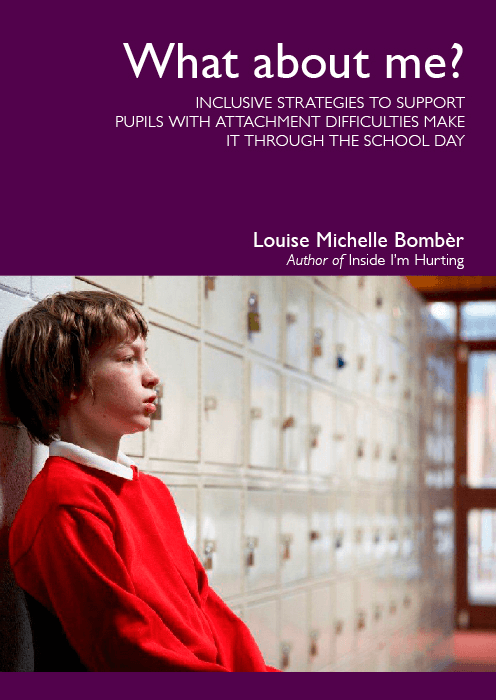
What About Me?
Inclusive Strategies to Support Pupils with Attachment Difficulties Make it Through the School Day
Louise Michelle Bombèr
What would a genuinely supportive school day look like in real practice, for children who have experienced attachment difficulties and developmental vulnerability? What are the core features of an attachment-friendly school? How can we promote inclusion and positively affect learning outcomes amongst pupils in need, at risk, in care and adopted? Loiuse Bombèr, teacher, therapist, trainer and author of the critically acclaimed number one selling book on behavioural difficulties, Inside I’m Hurting, draws on her extensive experience in working with these children and young people.

What About Me?
Inclusive Strategies to Support Pupils with Attachment Difficulties Make it Through the School Day
Louise Michelle Bombèr
What would a genuinely supportive school day look like in real practice, for children who have experienced attachment difficulties and developmental vulnerability? What are the core features of an attachment-friendly school? How can we promote inclusion and positively affect learning outcomes amongst pupils in need, at risk, in care and adopted? Loiuse Bombèr, teacher, therapist, trainer and author of the critically acclaimed number one selling book on behavioural difficulties, Inside I’m Hurting, draws on her extensive experience in working with these children and young people.

What About Me?
Inclusive Strategies to Support Pupils with Attachment Difficulties Make it Through the School Day
Louise Michelle Bombèr
What would a genuinely supportive school day look like in real practice, for children who have experienced attachment difficulties and developmental vulnerability? What are the core features of an attachment-friendly school? How can we promote inclusion and positively affect learning outcomes amongst pupils in need, at risk, in care and adopted? Loiuse Bombèr, teacher, therapist, trainer and author of the critically acclaimed number one selling book on behavioural difficulties, Inside I’m Hurting, draws on her extensive experience in working with these children and young people.
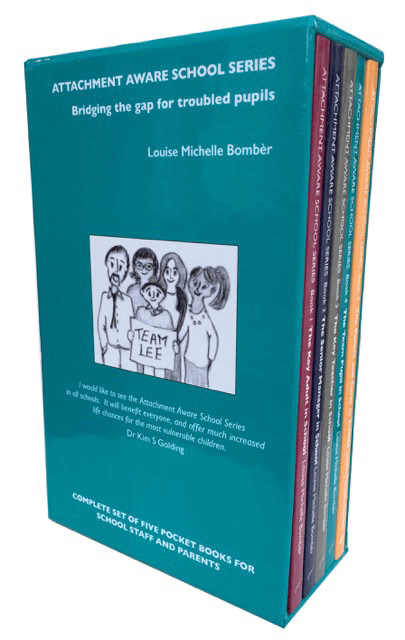
Attachment Aware School Series
Box Set of 5 Pocket Books
Louise Michelle Bombèr
Attachment Aware School Series: Boxed set of 5 pocket guides.
Book 1: The Key Adult in School.
Book 2: The Senior Manager in School.
Book 3: The Key Teacher in School.
Book 4: Team Pupil in School.
Book 5: The Parent and Carer in School.

Attachment Aware School Series
Box Set of 5 Pocket Books
Louise Michelle Bombèr
Attachment Aware School Series: Boxed set of 5 pocket guides.
Book 1: The Key Adult in School.
Book 2: The Senior Manager in School.
Book 3: The Key Teacher in School.
Book 4: Team Pupil in School.
Book 5: The Parent and Carer in School.

Attachment Aware School Series
Box Set of 5 Pocket Books
Louise Michelle Bombèr
Attachment Aware School Series: Boxed set of 5 pocket guides.
Book 1: The Key Adult in School.
Book 2: The Senior Manager in School.
Book 3: The Key Teacher in School.
Book 4: Team Pupil in School.
Book 5: The Parent and Carer in School.
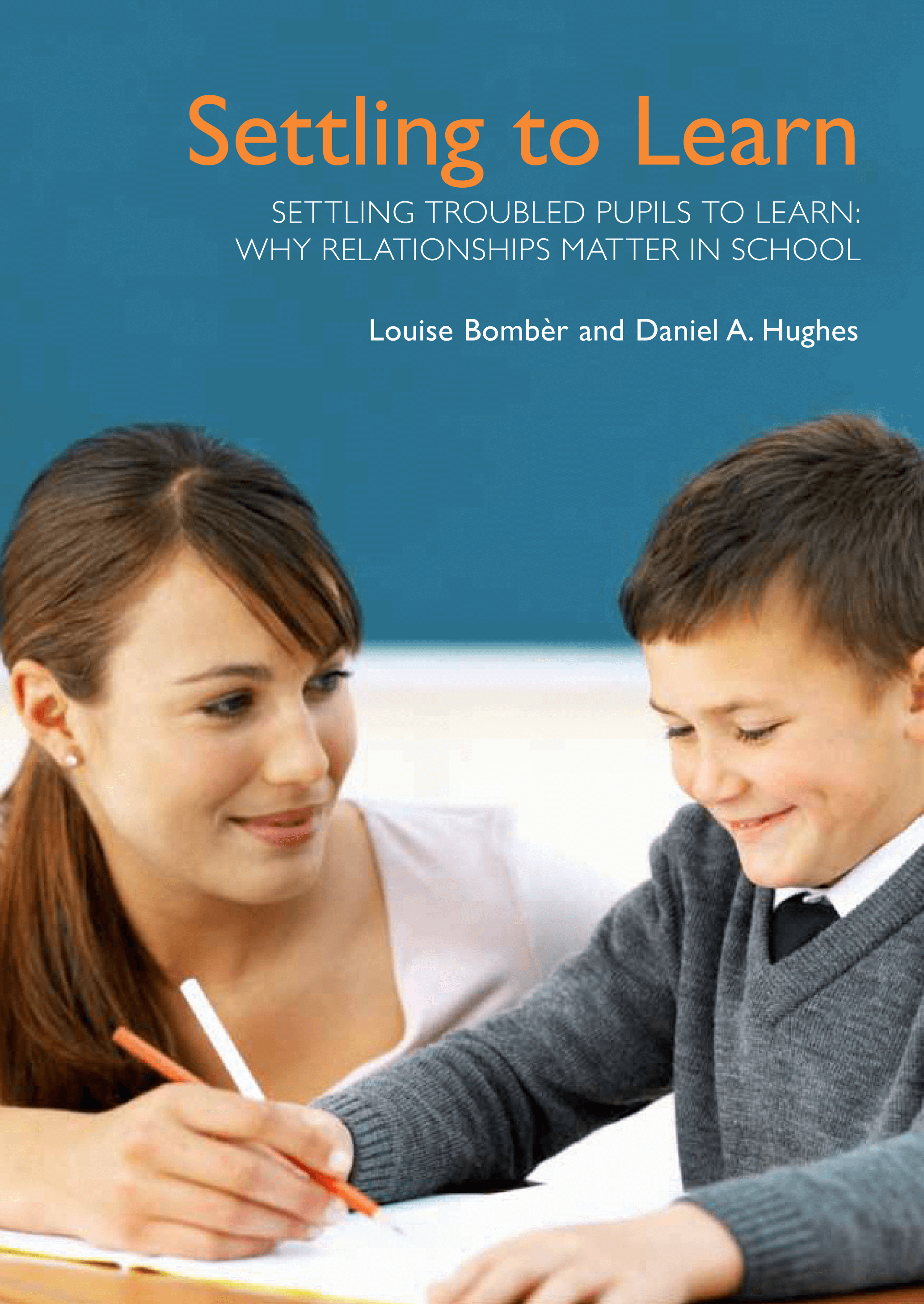
Setting to Learn
Settling troubled pupils to learn why relationships matter in schools
Louise Michelle Bombèr and Daniel A. Hughes
The way we teach our pupils and the way we run our schools is under scrutiny right now. In the midst of all the change going on, we often end up losing sight of the educative tool that is the most important of all – ourselves! Bomber and Hughes’ book gives educators permission to engage with pupils relationally. They provide alternative ways to the kinds of behaviourist models, fear-based approaches and increased levels of power, authority and control still exercised in many schools at present, which disturb already troubled pupils and further prevent them from accessing school.

Setting to Learn
Settling troubled pupils to learn why relationships matter in schools
Louise Michelle Bombèr and Daniel A. Hughes
The way we teach our pupils and the way we run our schools is under scrutiny right now. In the midst of all the change going on, we often end up losing sight of the educative tool that is the most important of all – ourselves! Bomber and Hughes’ book gives educators permission to engage with pupils relationally. They provide alternative ways to the kinds of behaviourist models, fear-based approaches and increased levels of power, authority and control still exercised in many schools at present, which disturb already troubled pupils and further prevent them from accessing school.

Setting to Learn
Settling troubled pupils to learn why relationships matter in schools
Louise Michelle Bombèr and Daniel A. Hughes
The way we teach our pupils and the way we run our schools is under scrutiny right now. In the midst of all the change going on, we often end up losing sight of the educative tool that is the most important of all – ourselves! Bomber and Hughes’ book gives educators permission to engage with pupils relationally. They provide alternative ways to the kinds of behaviourist models, fear-based approaches and increased levels of power, authority and control still exercised in many schools at present, which disturb already troubled pupils and further prevent them from accessing school.
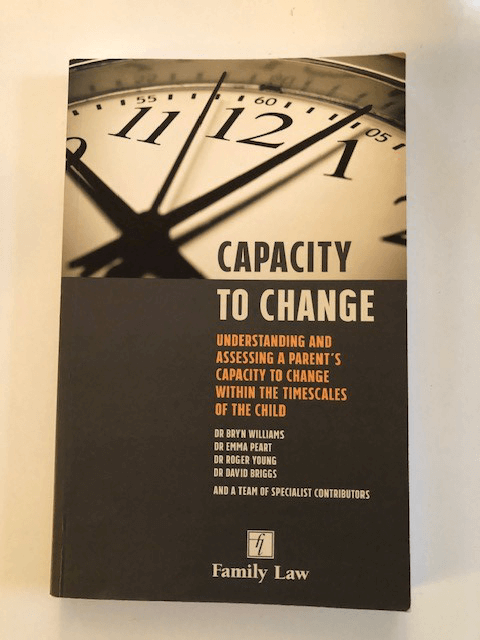
Capacity to Change
Understanding and Assessing a Parent’s Capacity to Change within the Timescales of the Child
Dr Bryn Williams
When family courts are making decisions about the best interests of children in legal proceedings there are often two conflicting questions posed in order to determine good outcomes: (i) Is change possible in the family within the timescales for the child? and (ii) Do the parents have the capacity to change? This terminology is used as though these two concepts were clearly defined and well-evidenced. With the move away from reliance on expert evidence in the court arena there is a need to provide practitioners in the social care and legal professions with a framework for formulating how the child s best interests can be met within their timescales and whether capacity to change is likely.

Capacity to Change
Understanding and Assessing a Parent’s Capacity to Change within the Timescales of the Child
Dr Bryn Williams
When family courts are making decisions about the best interests of children in legal proceedings there are often two conflicting questions posed in order to determine good outcomes: (i) Is change possible in the family within the timescales for the child? and (ii) Do the parents have the capacity to change? This terminology is used as though these two concepts were clearly defined and well-evidenced. With the move away from reliance on expert evidence in the court arena there is a need to provide practitioners in the social care and legal professions with a framework for formulating how the child s best interests can be met within their timescales and whether capacity to change is likely.

Capacity to Change
Understanding and Assessing a Parent’s Capacity to Change within the Timescales of the Child
Dr Bryn Williams
When family courts are making decisions about the best interests of children in legal proceedings there are often two conflicting questions posed in order to determine good outcomes: (i) Is change possible in the family within the timescales for the child? and (ii) Do the parents have the capacity to change? This terminology is used as though these two concepts were clearly defined and well-evidenced. With the move away from reliance on expert evidence in the court arena there is a need to provide practitioners in the social care and legal professions with a framework for formulating how the child s best interests can be met within their timescales and whether capacity to change is likely.
RESPECTED
Three well respected and established organisations join up to advocate for an empathic and informed understanding of the impact of trauma and loss on pupils.
ACCREDITED
The latest research in child development, attachment and neuroscience coupled with accredited experienced practitioners.
NURTURING
Creating small personalised teams in school who provide consistent, attuned and responsive care and rich, relational approaches.
NETWORKED
Encouraging attendance at local support groups, regional hubs, national conferences and completing further reading
CHANGING CHILDREN’S LIVES TODAY
Providing the training, resources and support for staff and assistants so that children and young people who have experienced trauma and loss have access to the help they need.
